Hush descends as the first pawns are moved.
The only sound is the regular click of timers as play passes between opponents.
Concentration is etched on the faces of those competing in the league match between Perth and Dundee’s Castlehill chess clubs.
I’m watching to learn about the attraction of chess and Tayside and Fife’s active community of players.
On Perth’s team is 14-year-old Leo Gray.
He only joined Perth Chess Club in May.
But it turns out chess is in his blood.
“His middle name is Vladimir,” his dad Scott tells me.
Chess is deeply embedded in Russia’s culture, the country producing many a grandmaster.
Leo’s mum is Russian and he plays chess with his grandfather Vladimir, who lives in Nizhny Novgorod, when they are able to see each other.
When Leo’s match is over, he tells me of games with his grandfather: “It’s like playing chess with a grandmaster! No matter what you try he does something else.”
The Queen’s Gambit effect on chess in Dundee and beyond
To non-players chess is just another board game, and a rather complicated one to boot.
To those in the know it’s an intellectual challenge, a battle of minds, a social leveller. It has logic and reason, beauty, history, it’s the game of kings. And anyone can learn it.
Popularity of chess soared in the wake of the 2020 television mini-series The Queen’s Gambit.
Starring Anya Taylor-Joy, the award-winning drama tells the story of orphan chess prodigy Elizabeth Harmon.
Cinematically stunning scenes show Elizabeth visualising complicated strategies on the ceiling above her.
The style and glamour of The Queen’s Gambit is a world away from the league match I’m watching at Perth Chess Club’s base in a room above Scott Street.
Meet the players from Perth and Dundee
But like Elizabeth, players are passionate about the game.
They include Shubham Lakudhar, 29, from Crieff.
Shubham’s score in Scottish rankings is 2,143. Scoring over 2,000, I’m told by another player, is “pretty good”.
It was as a boy living in India that Shubham learned to play chess.
Like Russia, India has a strong chess culture. Indeed India is considered the birthplace of the game, which dates back to the 6th Century.
Shubham, a masters graduate, said: “My cousins knew how to play. They used to mock me and that fired me up to get ambitious.”
Shubham’s match for the Perth team started going downhill a few moves in.
What is Shubham’s key to playing chess?
He says: “I played by instincts rather than set moves and my opponent started an abstract move.
“You have to rely on your calculations,” he says. “Calculation is the key aspect.”
“It’s difficult. You can calculate, the position changes, and sometimes it’s difficult to replicate on the board.
“There are different phases, the opening, middle and end game.
“There are standard openings, then you need to know how to transpose to the middle game.”
Aged 85, Martin Roberts is the oldest player during our visit. So he has the benefit of experience over younger players like Leo.
He says: “I learned when I was a boy, my father taught me.”
His advice? “You have to be able to concentrate and relax. Don’t get too tense.”
That can be quite a challenge when the timer next to the board ticks down.
But experience doesn’t guarantee players the edge over novices, he points out.
“You can get beat by someone who is much worse than you if you make a mistake.”
How to learn from the great games
Leo learns from players like Martin and others in the club who have taken him under their wing, says his dad.
Scott is also a keen player and accompanies Leo each week.
He encouraged Leo, also a keen footballer, to join for the skills element for his Duke of Edinburgh Bronze Award.
And he reckons it’s one of the best things he’s done for him. It’s not just upped his game but he has developed other skills, including mental and social skills.
He says: “Some of the chess players are supremely good here and they still give their time to a young laddie.
“He’s so much better than me now I can’t play him competitively!”
To practise, he and Scott sometimes replicate the moves of famous games which they find in books or online.
Scott says: “You can look at one of the great games of the past and say ‘that’s how he did that, that’s how he did this. Why don’t we try doing that?’
“Chess is one of those things: the older you are, the better you can be.
“Don’t get me wrong, there are 13-year-olds who are phenomenally good but you see the same moves all the time. You start to see patterns on the board.
“It’s quite mathematical, quite intellectual.”
‘I love the idea that it’s egalitarian’
The game also brings together people of all ages and backgrounds, he says.
“That’s what I really like about chess. You get guys who are working class characters and are brilliant and others who are academic and mathematical.
“I love the idea that it’s egalitarian.”
Dundee has produced some talented players. Scotland’s second-ever grandmaster, Colin McNab, is from the city.
One to watch is 13-year-old Castlehill member Rishi Vijayakumar, currently 22nd in Scottish rankings.
Becoming an accomplished chess player takes time and practice.
As Daniel Coleman, secretary of Castlehill Chess Club, says: “Most people know how the pieces move but actually knowing how to play chess is another matter.”
Daniel, 29, started playing chess when was in primary school and joined Castlehill at university.
However, chess appears to be something of a man’s world.
Only four out of Chess Scotland’s top 100 players are women.
Few women – but more after The Queen’s Gambit
There were no women when we visited but I’m told there are a few across Tayside and Fife Chess Association-affiliated (TAFCA) clubs.
And, I’m told, an upturn in new players inspired by The Queen’s Gambit series was particularly marked among women.
Daniel says: “After The Queen’s Gambit female participation in chess really took an up-kick.”
The influx of new players of both sexes after the programme screened took the club’s membership to new levels.
“There was a point where we were thinking we are struggling to cope with this!” says Daniel.
That series also coincided with Covid restrictions when there was what Daniel describes as in “explosion” in numbers playing chess online.
What is the allure of chess?
Now, Castlehill, one of the bigger clubs in TAFCA has around 60 members. There’s a busy programme of league, championship, friendly and online matches.
Daniel played in the Perth league fixture we attended and was in Kirkcaldy three days later for another competition.
Why does he enjoy chess so much?
“It’s hard to believe because we are all sitting in silence but there is a good social aspect to chess,” he says.
“In between games there are casual club nights and you are spending time with likeminded people and friends.
“I also enjoy the mental challenge of it. It’s something I try to get better at.”
Daniel is a councillor on Dundee City Council and says: “It’s a few hours away from the grind, you can focus on something else.
“Chess is massive across the world. It’s one of the most popular board games in history.”
Tayside and Fife Chess Association clubs
- Castlehill Chess Club, Thursdays 7pm, The Chaplaincy Centre, University of Dundee
- Dundee Chess Club, Mondays 7pm, St Peter’s Free Church Hall
- Kirkcaldy Chess Club, Thursdays 7.30pm, The Path Tavern
- Perth Chess Club, Mondays 7.30pm, ESOL, Drummond House
- Newport Knights, Wednesdays 7.30pm, The Newport Club
- University of St Andrews Chess Club, University of St Andrews Students’ Assocation
- Stonehaven Chess Club, Wednesdays 7pm, St James’ Church
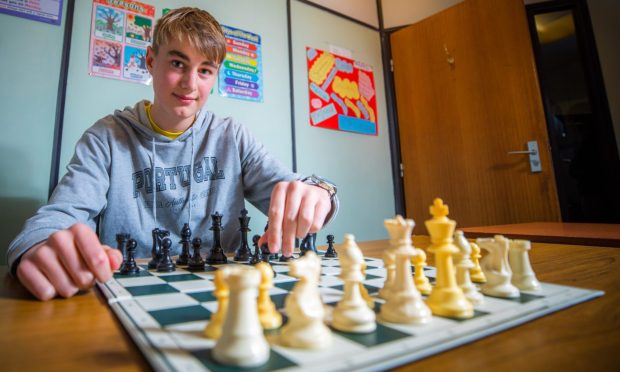
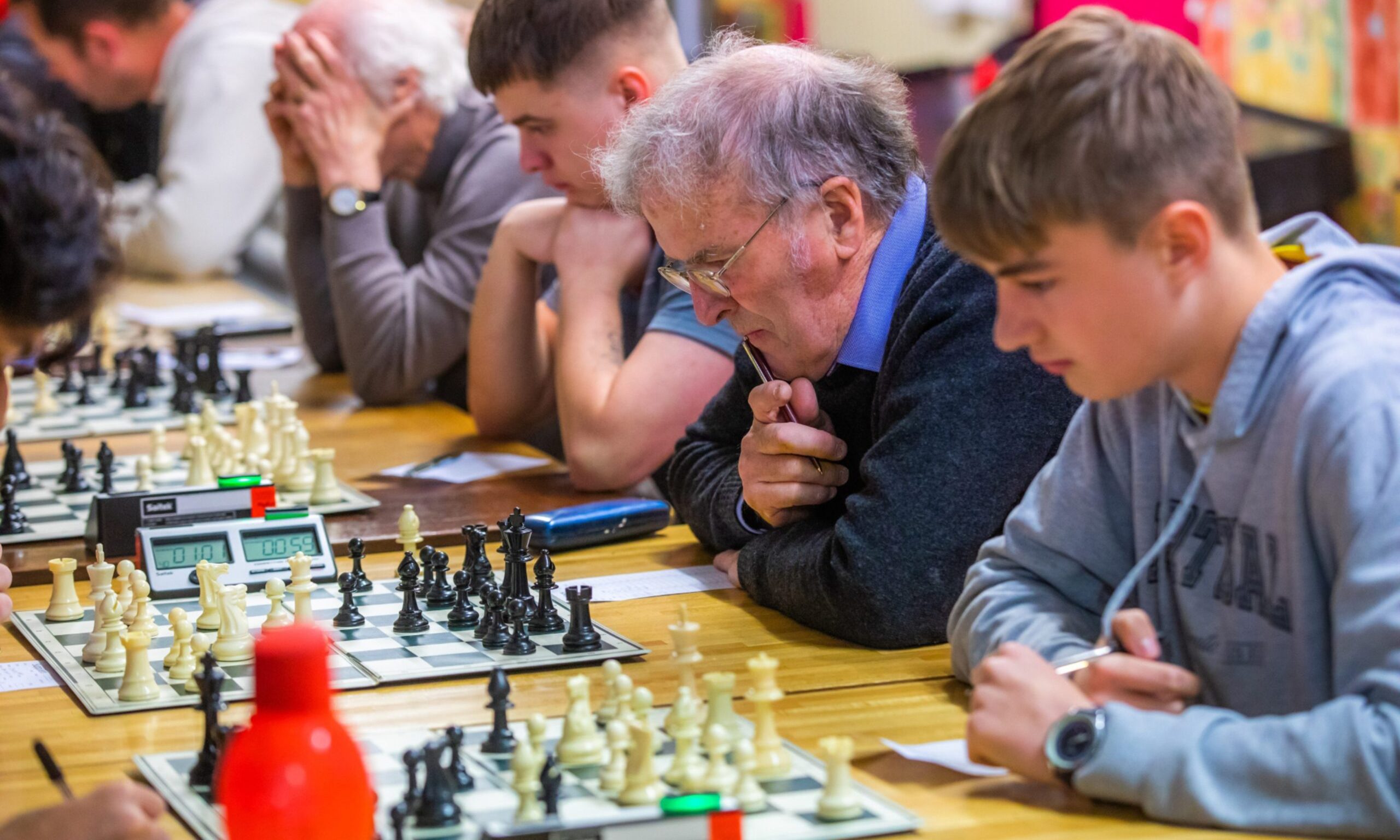
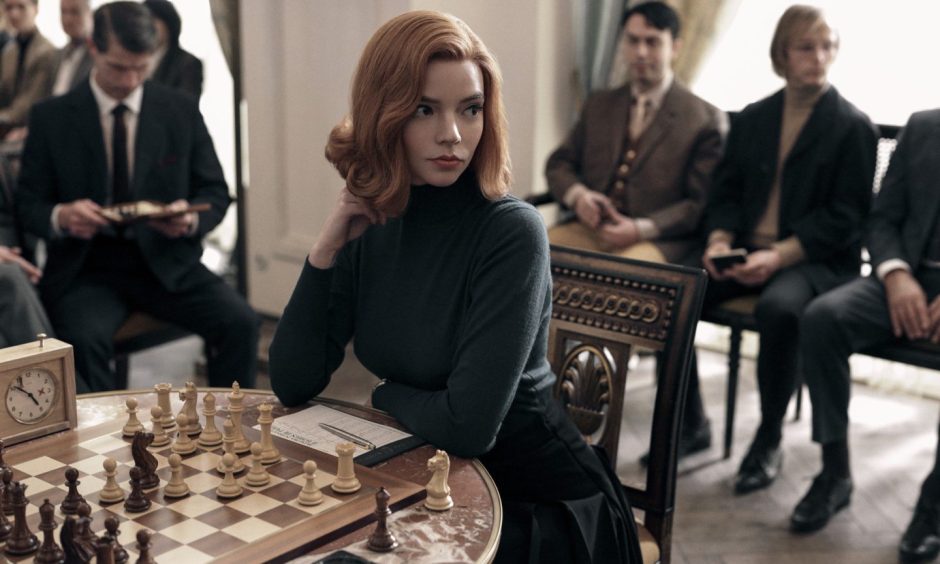
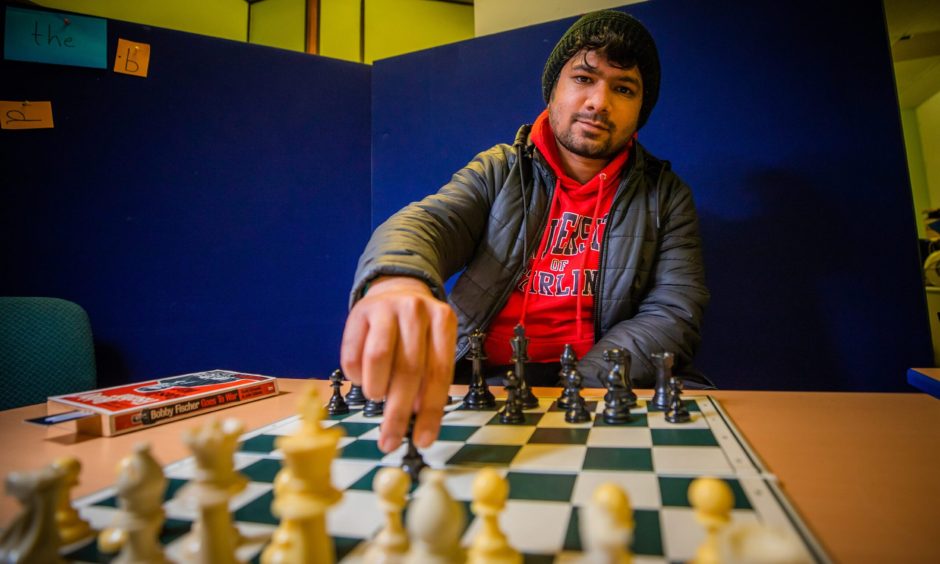
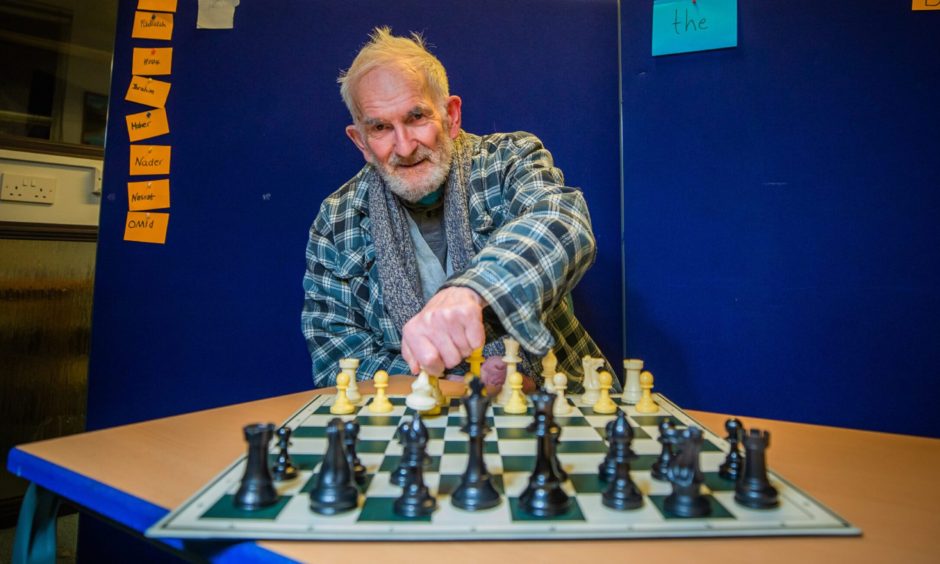
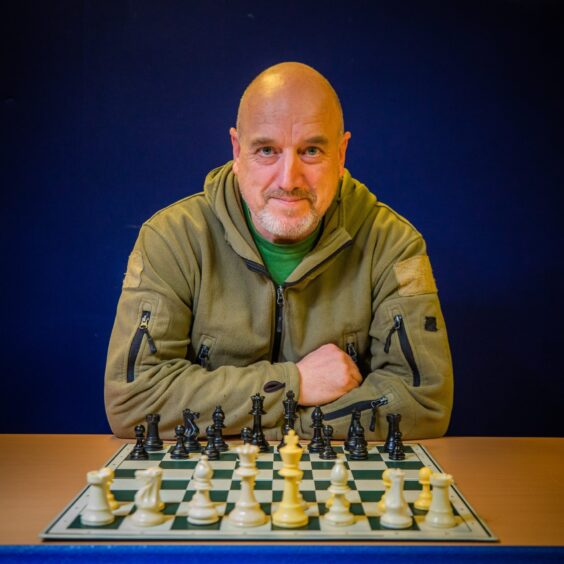
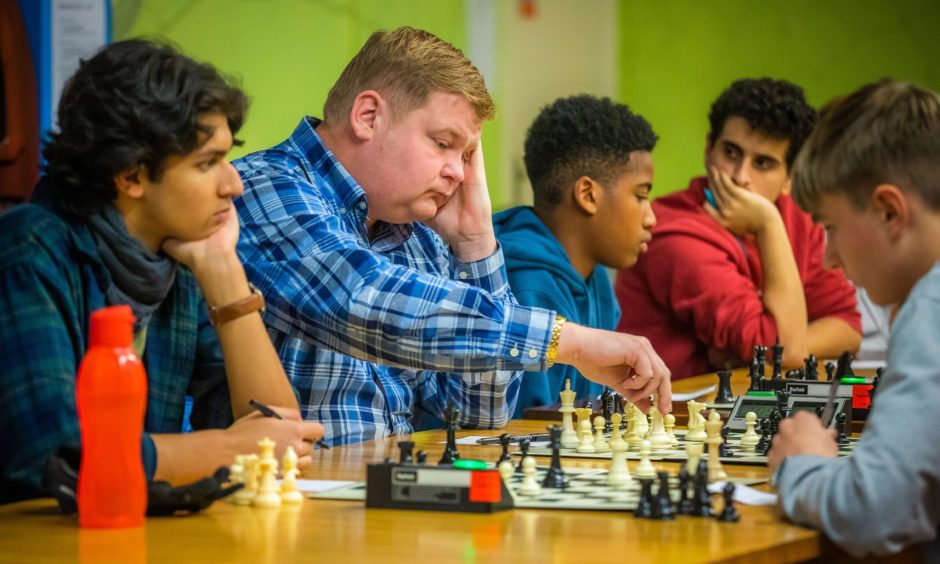
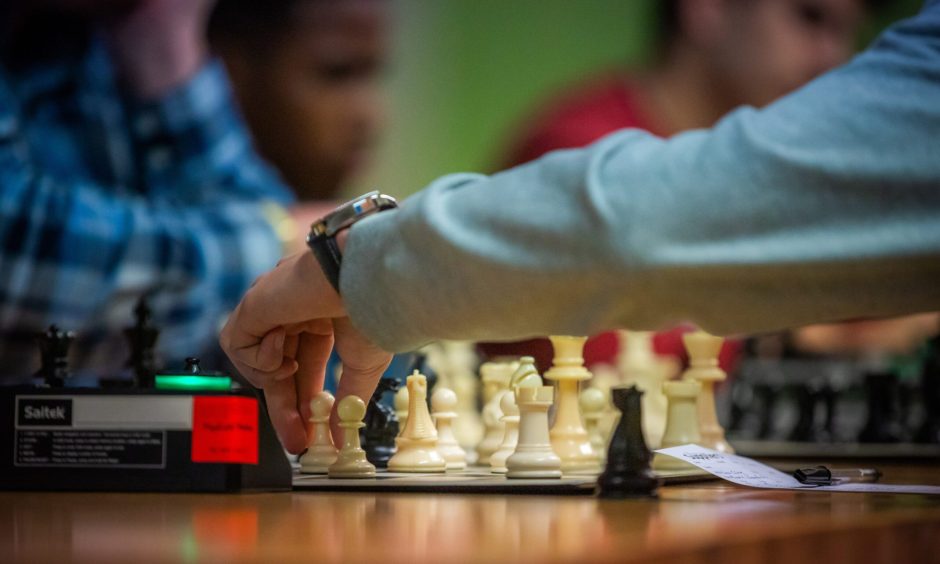
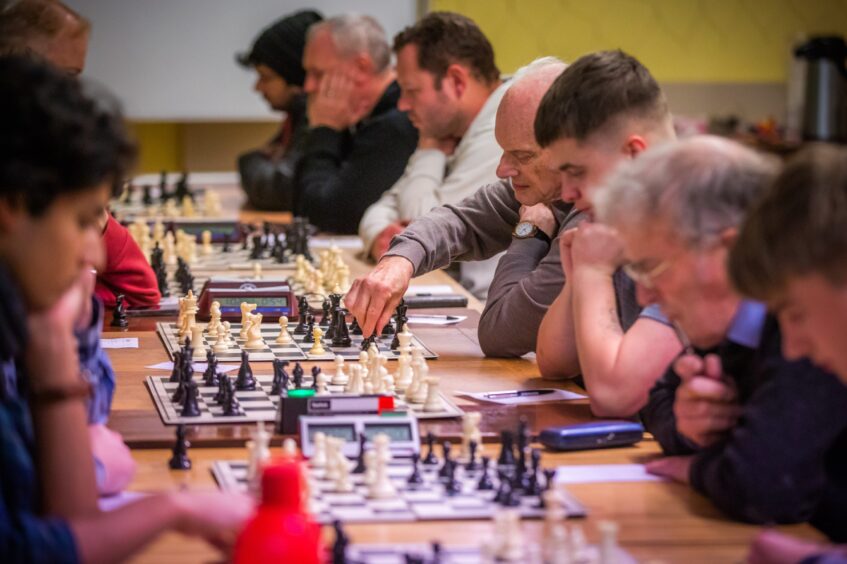




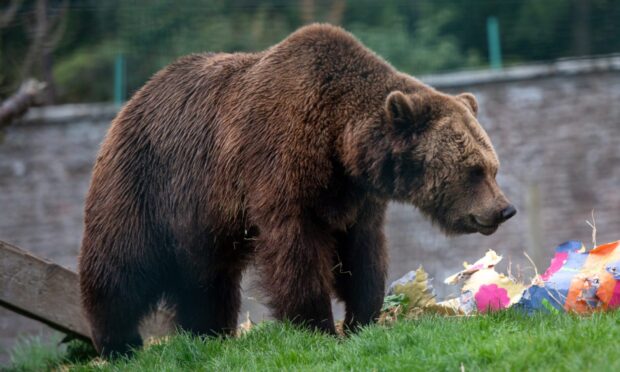

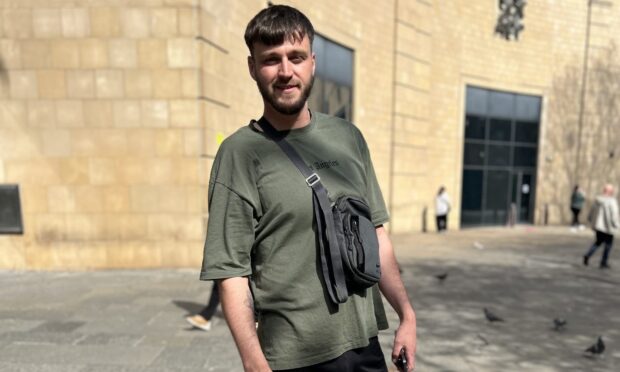

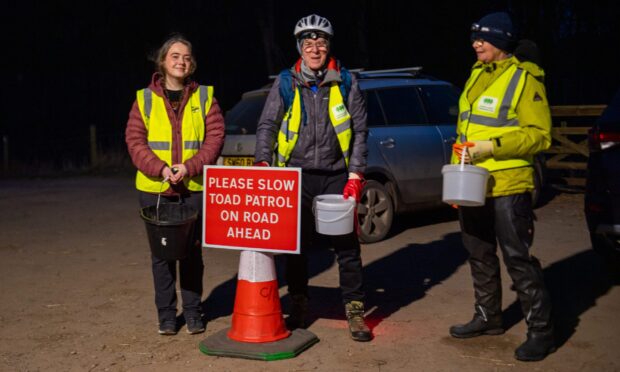

Conversation